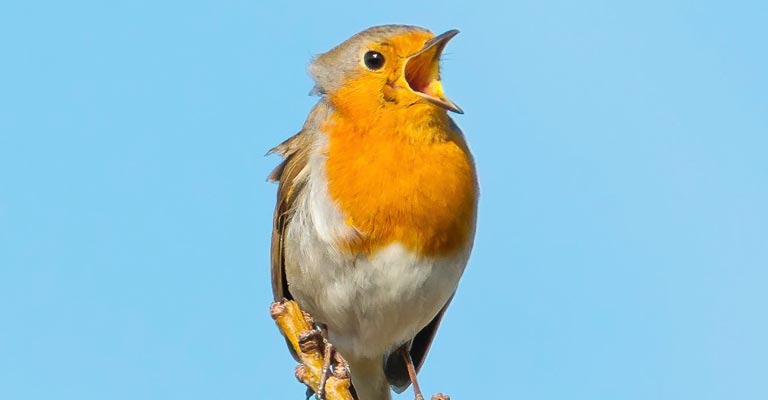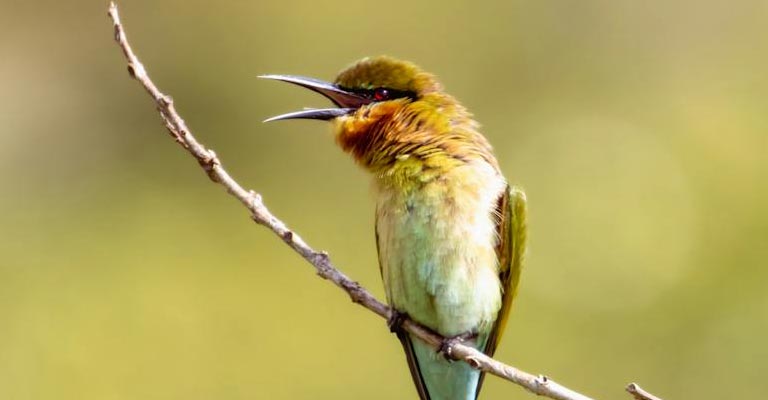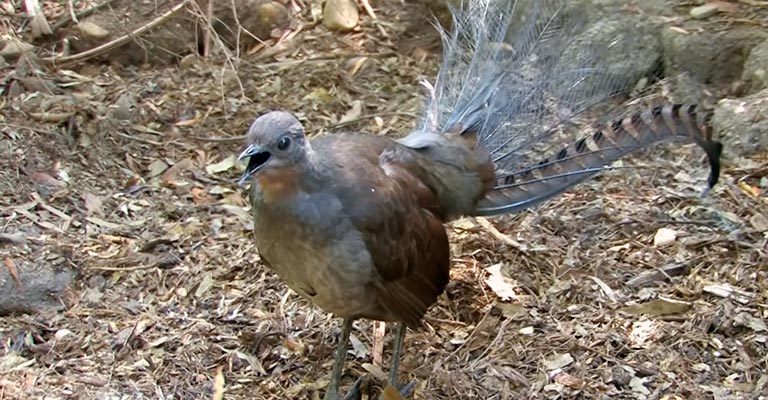If you’re a proud bird owner, you’re likely familiar with the wide range of sounds and vocalizations that your avian companion can produce.
While chirping, singing, and chattering are often pleasant and melodic, there may be times when your feathered friend decides to unleash a series of ear-piercing screams that leave you puzzled and concerned.
Wondering why is my bird screaming. In this article, we’ll explore the various reasons behind your pet bird’s vocal outbursts, and we’ll delve into the fascinating world of avian communication.
Understanding the underlying causes of your bird’s vocalizations is key to maintaining a harmonious relationship with your pet and ensuring their well-being.
Whether you’re a seasoned bird owner or a newcomer to the avian world, this article will help you decode the mystery of why your bird is screaming and provide valuable insights into how to respond to their vocal expressions.

Why Is My Bird Screaming?
Let’s explore the various reasons why your bird might be screaming. Understanding the underlying causes of your bird’s vocalizations is key to maintaining a harmonious relationship with your pet and ensuring their well-being.
Birds communicate primarily through vocalizations, and the sounds they make serve a variety of functions. Understanding the nature of avian vocalizations is the first step in deciphering why your bird might be screaming. Here are some key aspects to consider.
Attention-Seeking
Birds, like many other pets, enjoy attention from their human companions. Some birds may scream when they want your company or are feeling lonely.
This type of vocalization is often characterized by persistent, repetitive screaming and may be more common in species that are highly social and thrive on interaction.
Territorial Calls
Many birds are territorial by nature, and they may use vocalizations to establish and defend their territory.
This can lead to screaming, especially if they perceive a threat or intruder near their living space. Understanding your bird’s territorial instincts can help you manage this behavior more effectively.
Expressing Emotions

Birds have emotions too! Just like humans, they may use vocalizations to express their feelings, such as happiness, excitement, fear, or frustration.
Learning to read your bird’s body language and the context of their screams can provide valuable insights into their emotional state.
Stress and Anxiety
Birds can experience stress and anxiety for various reasons, including changes in their environment, diet, or routine.
Screaming can be their way of coping with these stressors. Identifying and addressing the sources of stress can help reduce this behavior.
Health Issues
In some cases, excessive screaming can be a sign of underlying health problems. Birds may scream when they are in pain or discomfort. It’s crucial to be vigilant about changes in your bird’s behavior and consult a veterinarian if you suspect a health issue.
How Do I Address Excessive Screaming?

Now that we’ve explored the reasons behind your bird’s vocalizations, let’s delve into how to address excessive screaming. It’s important to remember that managing this behavior often requires patience, consistency, and a combination of approaches.
Provide Mental and Physical Stimulation
Birds are naturally curious and intelligent. Offer a variety of toys that challenge their problem-solving skills, such as puzzle feeders or foraging toys. These can keep them engaged and mentally stimulated.
Birds can become bored with the same toys over time. Rotate their toys regularly or introduce new ones to maintain their interest. This can help prevent repetitive screaming due to boredom.
Maintain a Consistent Routine
Establish regular feeding schedules. This not only ensures they receive proper nutrition but also creates a sense of security in knowing when to expect meals.
Consistency in playtime and bedtime routines can reduce stress. Try to have set periods for play and interaction, and dim the lights in the evening to signal bedtime.
Social Interaction
Birds are social animals and often scream for attention. Spend quality time with your bird. Engage in conversation, provide physical contact, and play with them to satisfy their need for social interaction.
If your bird is of a species that thrives on social interaction, consider introducing another bird as a companion. This can reduce loneliness and the need for constant human attention.
Positive Reinforcement
Create a reward system where quiet and well-behaved moments are recognized and reinforced. Offer favorite treats, enthusiastic praise, or gentle petting when your bird is calm. Consistency in rewarding good behavior is key to success.
Ignore Unnecessary Screaming
Be prepared for an initial increase in screaming when you start ignoring unnecessary outbursts. This is known as an “extinction burst.” By persistently not reacting, your bird will eventually realize that excessive noise doesn’t lead to attention.
Consult a Professional
An avian veterinarian is essential for assessing your bird’s overall health. They can perform a thorough examination, check for any underlying health issues, and recommend treatments if necessary. Health problems can sometimes manifest as excessive vocalization.
Environmental Adjustments
Choose a location for your bird’s cage that is away from noisy areas and external stressors. A quiet and less stimulating environment can help reduce anxiety and the need for constant vigilance.
If your bird is social, consider introducing another bird into their environment as a companion. This can alleviate feelings of loneliness and provide a social outlet.
By implementing these strategies consistently and adjusting them to your specific bird’s personality and needs, you can effectively address and reduce excessive screaming, creating a harmonious and contented living environment for your feathered friend.
What Bird Sounds Like It’s Crying?

If you’ve ever heard what seems like a bird crying, you’re not alone. Several bird species have calls that resemble human-like cries, evoking emotions and curiosity in those who listen.
Here, we’ll delve into some of the feathered friends whose vocalizations might remind you of crying and discuss the reasons behind these sounds.
Mourning Doves: Gentle Lamentation
Mourning doves are renowned for their soft, mournful cooing that can be mistaken for crying.
Their coos are a series of hooting sounds that often evoke a sense of melancholy. Despite the mournful quality, these vocalizations are typically associated with courtship and are a means of communication between mates.
Mourning doves are monogamous and form strong pair bonds. During courtship, their coos intensify, creating a beautiful, if somewhat sorrowful, symphony.
So, if you hear what sounds like a bird crying in your backyard, it might just be a pair of mourning doves expressing their affection for each other.
Common Loons: Haunting Wails on the Water
If you’re near lakes or other large bodies of water, you might encounter the eerie, haunting calls of common loons.
These aquatic birds are known for their distinctive wails that echo across lakes and evoke a sense of wilderness solitude. Common loon calls can be reminiscent of crying or even wolf howls, adding to their mystique.
Loons use their vocalizations for communication, particularly during the breeding season. Their cries can convey territorial boundaries, attract mates, and maintain contact with their partners and offspring.
While the sounds may seem mournful to human ears, they serve crucial roles in loon social dynamics.
Barn Owls: Ghostly Screeches in the Night
Barn owls, with their heart-shaped faces and silent flight, are known for producing eerie, ghostly screeches that might be interpreted as cries.
These nocturnal hunters have a range of vocalizations, including hisses, screams, and shrieks, which they use for communication within their territories.
The haunting quality of barn owl vocalizations adds to their mystique as nocturnal predators. If you’re in rural areas or near open fields, you might hear these distinctive calls, often associated with their hunting activities or interactions with other barn owls.
Common Nighthawks: Unsettling “Peent” Calls
Common nighthawks, despite their name, are not hawks at all but rather members of the Nightjar family.
These birds are known for their distinctive “peent” calls that can sound like a distant cry. The male nighthawks produce these vocalizations during their elaborate courtship displays.
The “peent” calls serve as an integral part of the male nighthawk’s aerial display. After emitting these calls, the male performs impressive aerial acrobatics, diving and booming through the air.
While the calls may not exactly mimic human crying, they contribute to the atmospheric sounds of dusk and can evoke a sense of mystery.
FAQs
Why is my bird screaming excessively?
Excessive screaming in birds can be due to various reasons, such as boredom, anxiety, or the need for attention. It’s essential to determine the cause to address the behavior effectively.
How can I stop my bird from screaming all the time?
To reduce excessive screaming, ensure your bird’s physical and mental stimulation needs are met. Provide toys, social interaction, and a consistent daily routine to help alleviate the behavior.
Is my bird screaming because of health issues?
Sometimes, health problems can lead to vocalization changes in birds. If you suspect a health issue, consult a veterinarian to rule out any medical concerns causing the screaming.
Could my bird be calling for a mate?
Certain bird species may scream or vocalize more during breeding season as a way to attract a mate. This behavior is natural, and you should consider providing enrichment to keep them engaged.
Can a noisy environment trigger my bird’s screaming?
Yes, a loud or chaotic environment can stress a bird and cause increased vocalization. Ensure a calm and quiet setting for your bird, especially during sleep hours, to minimize excessive screaming.
Conclusion
In the world of feathered companionship, understanding your bird’s vocalizations is not just about deciphering the noise; it’s about connecting with your avian friend on a deeper level.
The reasons behind their screams are as diverse as the colors of their plumage, and by taking the time to decode their messages, you can build a stronger bond and ensure their well-being.
As we’ve explored, your bird may scream for attention, to express their emotions or as a response to various environmental factors. It’s essential to pay close attention to the context of their vocalizations, as well as their body language, to determine the underlying cause.
Remember that patience, love, and consistent training are key to managing excessive screaming and fostering a peaceful coexistence with your bird. By becoming attuned to their unique vocal expressions, you’ll ensure a happier and healthier life together.